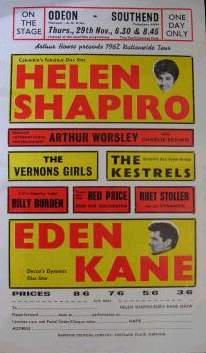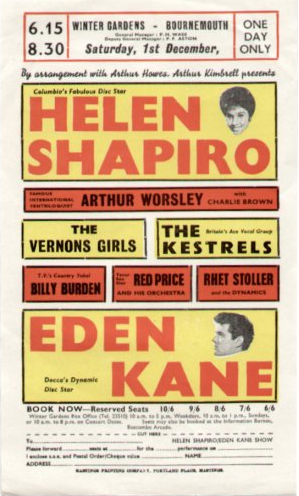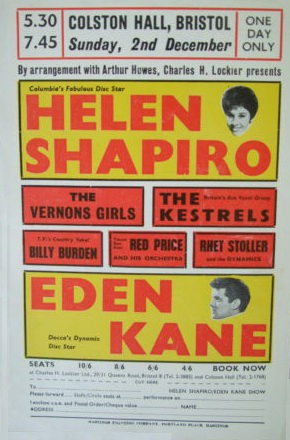

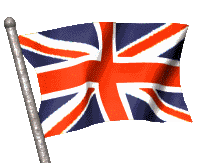
Born on June 15, 1914 in Wimborne, Dorset, England (UK).
Birth Name: William George Burden
Died on June 3, 1994 in Wimborne, Dorset, England (UK) from a heart attack.
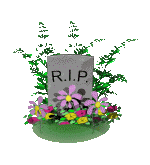
TV Appearances
(2008)John Nettles Applauds-The Comedy of Life (Himself)
(1987)Screen 2-The Children of Dynmouth
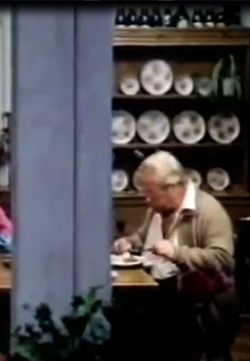
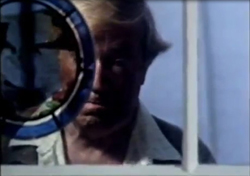
Both images ©BBC
(1986-1988)"Hi-De-Hi!" (Mr. Turner/Mr. Thompson)
---It's Murder
---Pigs Might Fly
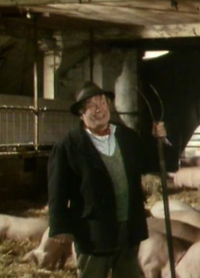 ©BBC
©BBC
---September Song
---The Wind of Change
(1982)The Boys in Blue (Herdsman)
.jpg) ©MAM Ltd. /Apollo Leisure Group
©MAM Ltd. /Apollo Leisure Group
(1980)"Oh Happy Band" (Mr. Sowerby)
(1978)"George and Mildred"- Nappy Days (Farmer)
(1969)"A Present for Dickie" (William)
(1963)Comedy Bandbox-Ep 1.9
(1962)The Good Old Days (Performer)
(1956)Camera One-Eps 1.3+1.5
Anonymous Contributors
http://movie-dude.com/%5bFilm%5d%20The%20Boys%20in%20Blue%20(1982).htm
"Grace & Favour" (AYBS/A) Stats
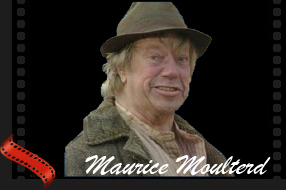
"Grace & Favour" (1992-1993)
All 12 episodes
Magazine/Newspaper/Articles
Audio/Video/Books/Official Websites
Real Life Facts
-Billy Burden and Arthur English both appeared in "The Boys in Blue".
Stage/Etc.
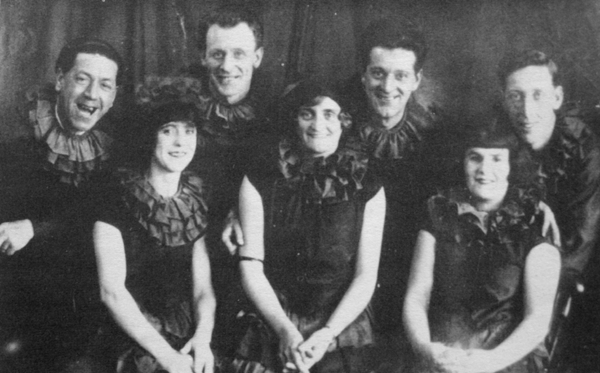
Billy Burden, (far left), with the group called the Optimists. Image taken in 1927.
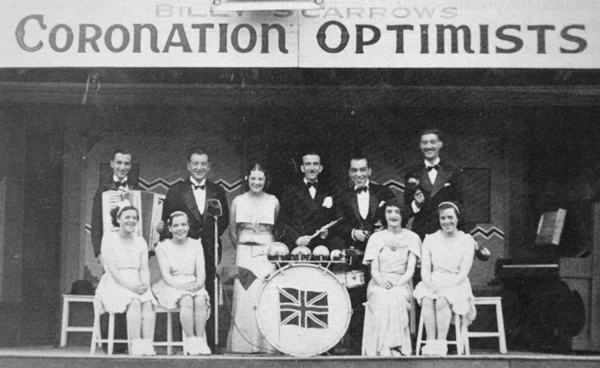
Billy Burden ,(back row; 2nd from left), with the group called the Optimists. Image taken in 1937.
"Among the more celebrated of the stars appearing in Billy [Scarrow's] show, was comedian Billy Burden, who went on to star in the Harry Worth TV show and also made appearances in Hi-de-Hi."
Panto/Theater
-Appeared in many Frank Maddox pantos at "The 'Theatre Royal Panto" in Bath.
(1972-1984) "The Rick Jango Road Show"
(1975)Babes in the Wood at The Playhouse
1979 Mother Goose at the New Theatre Oxford. Was a Henchman along with John Inman.
(1983)Let's Go Camping at Weymouth
"Billy Burden did indeed play the Pig in THE OWL AND THE PUSSYCAT WENT TO SEE ..., but not on stage! He played it - very well - on an LP recording released by Philips Records in the early 1970s.
The musical play was first performed at the Swan Theatre, Worcester in 1968. The following year it played in London for the first of many Christmas and Easter seasons in the capital. It was also seen in most British regional theatres, and toured - by Cameron Mackintosh and myself - to many large theatres nationwide. Written for children, the play was - and still is - presented as an alternative to the traditional Christmas pantomime.
The recorded version was originally conceived as a vehicle for Harry Secombe, who was under contract to Philips Records. Recording Manager Johnny Franz put together a splendid package, with Harry narrating and playing the Quangle Wangle. Roy Castle played Owl and Hattie Jacques played Pussycat. Most of the other cast members had played in the show on stage in London. As a treat, I was allowed to play the Turkey! I think that it was Johnny's idea that Billy Burden should play the Pig. I had seen him perform his stand-up act on television, and knew that he had a very rich West Country voice, which was perfect for the role. No singing was required. Perhaps Billy was a fine singer, but I didn't know! He was offered the job, accepted, and at the recording was very professional, enduring and definitive, in my view, as rather selfish, dim-witted, yet ultimately helpful Pig.
The story of THE OWL AND THE PUSSYCAT WENT TO SEE ... was based on the verses and stories of Edward Lear, whose nonsense verse is part of a British tradition. Other exponents include Spike Milligan and, of course, Lewis Carroll.
Philips no longer produce their recording, but I, as the co-creator of the play, and as the writer of the songs, arranged with Philips to acquire copies of the recording, in cassette form. I still have copies, available from me via the website at www.davidwood.org.uk."
12: December 2007 : document of the month
December's Document of the Month looks at that most unique British art form, The Pantomime.
He's Behind You! (Oh No He Isn't)
The pantomime began it's golden age in the Nineteenth Century but its origins can be traced to the Middle Ages while it also encompasses the Italian tradition known as 'Commedia dell' Arte', a type of travelling street theatre. The Italian Commedia was brought to the London stage by John Weaver (1673-1760) at Drury Lane as 'Italian Night Scenes' and was an instant hit. During the Nineteenth Century, turns imported from the growing Music Hall industry, began to dominate the pantomime stage making it more slap-stick and raucous, but at the same time including current affairs. Today the top pantomime stars come from television soap operas.
Our Document of the Month is a poster for a production of Babes in the Wood at the Bournemouth Playhouse (now the Wessex Christian Centre), starring Dora Bryan, Norman Vaughan and Billy Burden dating from the 1970s. It is part of the Billy Burden Archive (our ref: D/BBU Acc 8343) which was recently transferred to the Dorset History Centre from the Priest's House Museum in Wimborne.
Billy Burden, who was born in Wimborne, was a comedian and comic actor who began his career in 1938 working with a travelling troop of players, Billy Scarrow's 'Optimists'. During the Second World War he travelled in West Africa with ENSA entertaining the troops. After the war he developed a comic character, a west-country yokel, which he continued to play for the rest of his career, he even appeared in such television series as 'Hi-De-Hi', 'George and Mildred' and 'Are You Being Served?'
'Babes in The Wood' is based on a sixteenth Century English ballad called 'The Children In The Wood: or, the Norfolk Gentleman's Last Will and Testament'. First appearing on stage in 1793, it was adapted in 1827 as 'Harlequin and Robin Cooke; or the Babes in the Wood', there was also a production called 'Harlequin Nobody'. The Harlequin character comes from the Italian 'Commedia dell' Arte' and he often appears in early pantomimes. The original Babes in the Woods story had a sad ending with the children dying, but in 1867 a new version of the story saw Robin Hood introduced as the hero who rescues the abandoned orphans with the villain, the wicked Uncle, being found out, becoming more like the version we see today.
Appeared at the Kenneth Moore Theater.
1962 ARTHUR HOWES TOUR
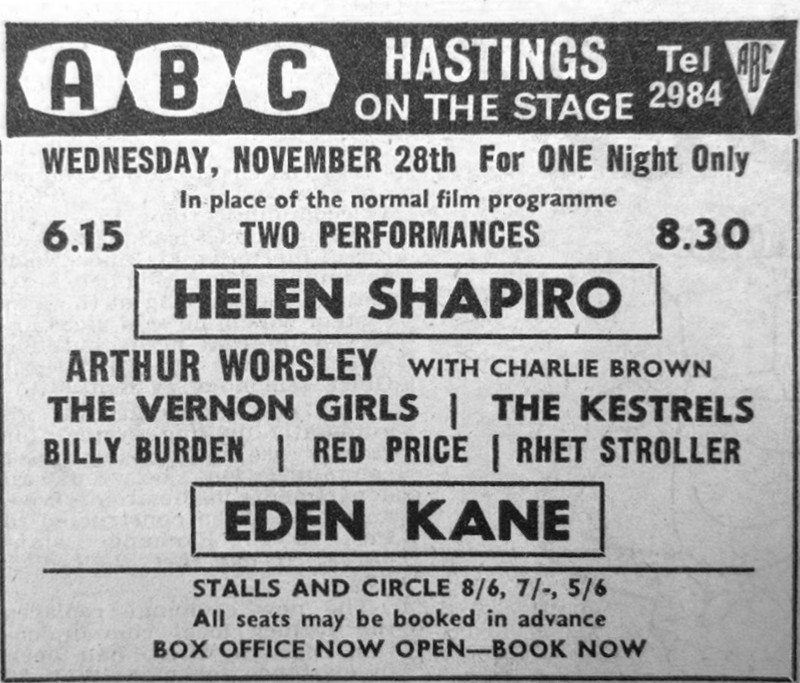
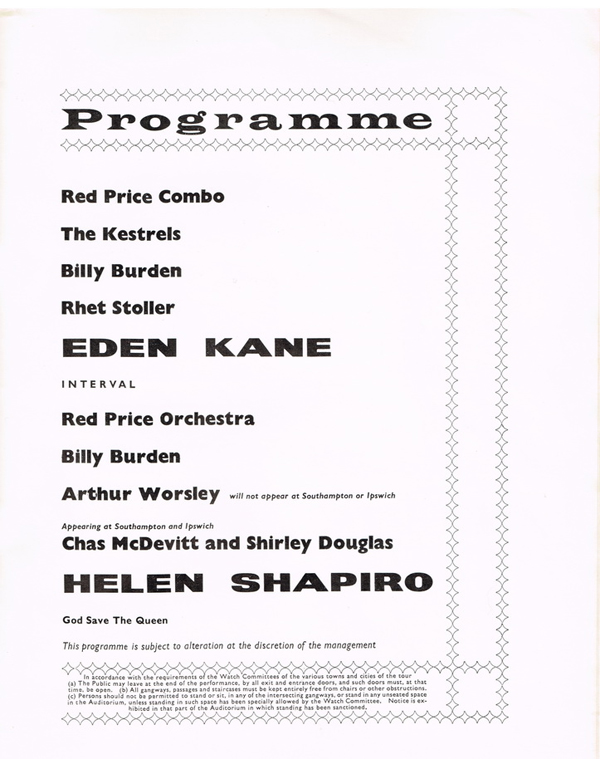
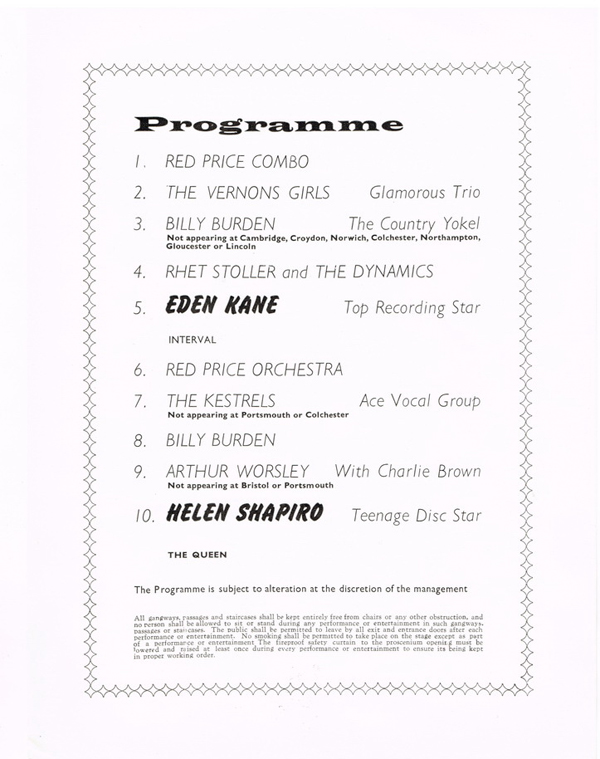
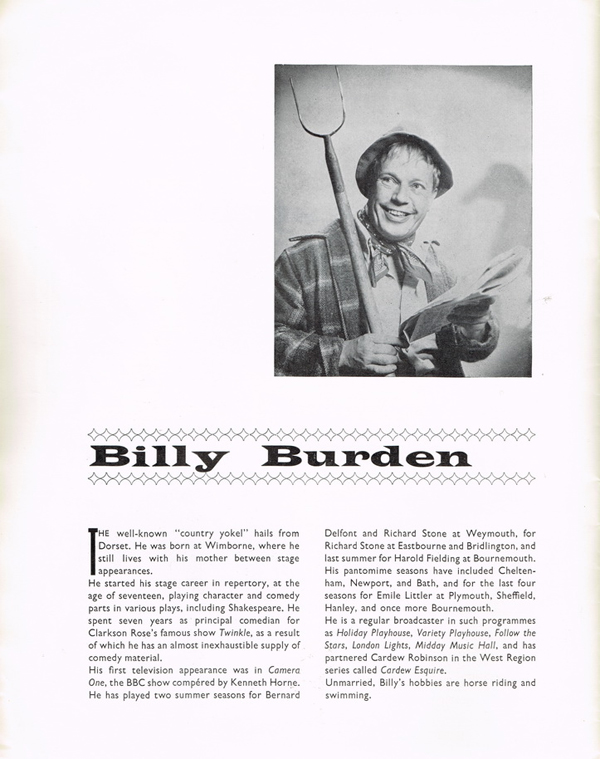
Posters from the event:
